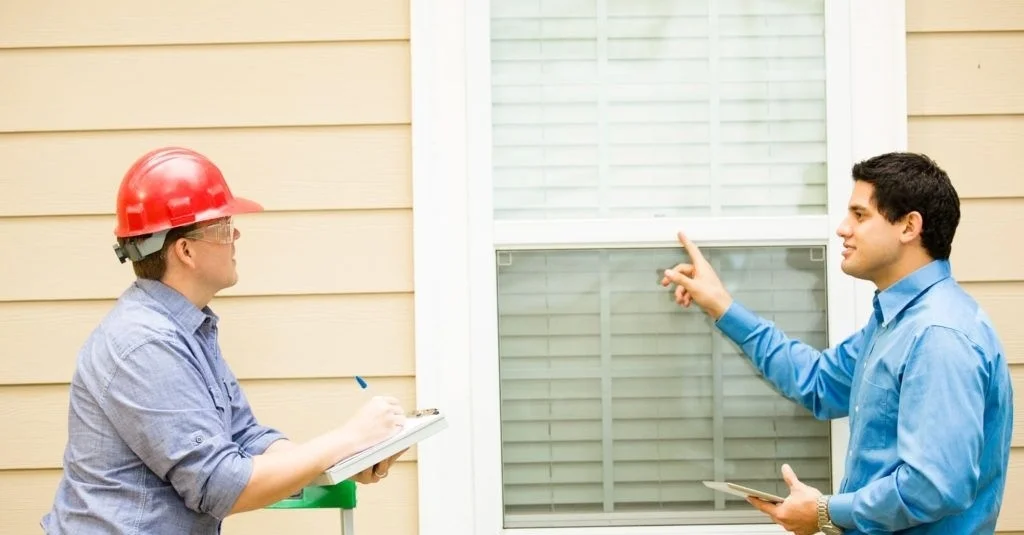You've found it. After weeks of searching, you’ve finally discovered a home in Cape Coral that feels like the one. It’s in a great neighborhood, maybe even has a coveted canal-front spot. The paint is fresh, the floors gleam, and it smells of potential. In the excitement of this major life decision, it's tempting to see only the possibilities and overlook the practicalities. The desire to move quickly in a competitive market can make a professional evaluation seem like an unnecessary delay or expense.
This is precisely where the most costly mistakes in real estate are made. That beautiful surface can hide a world of issues beneath—issues that can drain your savings for years to come. A thorough evaluation by a certified professional is not a mere formality; it is one of the most powerful financial safeguards available to a homebuyer. Investing in professional Home Inspection Services is a classic case of spending a little to save a lot. It transforms you from an hopeful admirer into an informed buyer, empowering you to make one of the largest financial decisions of your life with clarity and confidence.
Let's explore the hidden dangers a Cape Coral home can harbor and how a detailed inspection protects your investment and your future budget.
The Unseen Costs Behind the Walls: What an Inspection Uncovers
A home inspection is a systematic examination of a property's physical structure and systems, from the roof to the foundation. For a few hundred dollars, you gain a comprehensive understanding of the property's true condition, revealing problems that are easy to miss during a casual walkthrough.
The Foundation and Structural Integrity
In Florida, the soil composition and water table create unique challenges. A home might have a charming, settled look, but what appears as "character" could be a sign of foundational settling or, worse, sinkhole activity. An inspector will examine the foundation for cracks, check for uneven flooring, and look at door and window frames for misalignment. Catching a minor foundation issue early can lead to a repair costing a few thousand dollars. Ignoring it could result in a structural catastrophe requiring six-figure underpinning and reconstruction.
The Roof: Your First Line of Defense
The roof is your home’s shield against Florida’s intense sun and torrential summer storms. A layperson might see a roof that looks fine from the ground, but an inspector will get on a ladder to examine it up close. They are looking for cracked or missing tiles, worn-out shingles, damaged flashing around vents and chimneys, and signs of leaks in the attic. A simple leak, if undetected, can lead to rotted roof decking, damaged insulation, and toxic mold growth in the attic—a repair bill that can easily balloon to $15,000 or more. Knowing the roof's remaining lifespan is crucial for budgeting, whether it means requesting a seller credit or planning for a replacement yourself.
The Electrical System: A Hidden Fire Hazard
Older homes in Cape Coral may still have outdated electrical systems. These can include obsolete federal Pacific electric panels (known for being a fire risk), aluminum wiring, or simply circuits that are overloaded by modern appliance demands. An inspector will check the main service panel, test outlets for proper grounding, and look for any unsafe wiring conditions. Rewiring a home is an invasive and expensive process, often costing upwards of $8,000. An inspection can identify these risks before you own them, allowing you to ask the seller to make the repair or adjust your offer accordingly.
The Plumbing: More Than Just Good Water Pressure
A running toilet or a slow-draining sink might seem like minor annoyances. But they can be symptoms of larger problems, like hidden leaks within the walls that cause rot and mold, or worse, outdated polybutylene plumbing. This type of plumbing, used extensively in the 80s and 90s, is prone to sudden failure and can lead to catastrophic water damage. An inspector will check water pressure, look for visible leaks, identify the type of piping used, and inspect the water heater for age and condition. A full-home repipe can cost $5,000 to $10,000—a bill you definitely want to avoid in your first year of homeownership.
The Cape Coral Specifics: Why Local Expertise is Non-Negotiable
A home inspection is not a one-size-fits-all service. The unique environment of Southwest Florida presents specific challenges that a local inspector is trained to identify.
HVAC Systems in a Subtropical Climate
Your air conditioning system isn't a luxury in Cape Coral; it's a necessity for survival. An inspector will assess the age, condition, and efficiency of the AC unit. They will check for proper refrigerant levels, clean coils, and ensure the condensation drain line is clear—a common cause of water damage in Florida closets and ceilings. Replacing a failing HVAC system can cost $6,000 to $12,000. The inspection tells you if you're buying a reliable system or one on its last legs.
The Battle Against Moisture and Mold
Our high humidity is the perfect breeding ground for mold. An inspector is trained to look for the subtle signs of moisture intrusion and mold growth that you might miss. This includes checking around windows, in crawl spaces, and in bathrooms for water stains, peeling paint, and that distinctive musty smell. Professional mold remediation can be costly, and preventing it through identified repairs is far cheaper than curing it later.
Exterior Envelope and Hurricane Readiness
The home's exterior—its siding, stucco, and windows—is its defense against the elements. An inspector will look for cracks in the stucco, rotting wood trim, and the condition of weather seals around windows and doors. They will also verify the presence and condition of hurricane straps in the attic, which are critical for keeping your roof on during a storm. Ensuring the home is properly sealed and fortified is not just about comfort; it's about safety and avoiding massive storm-related damage.
The Power of the Report: From Information to Action and Savings
The true value of the inspection isn't just in knowing the problems; it's in what you can do with that information.
Your Negotiating Powerhouse
The inspection report is your most powerful tool in the final stages of the home-buying process. It moves the conversation from "I think" to "the report shows." With a detailed, professional report in hand, you have several options to save money:
-
Request Repairs: You can ask the seller to fix specific items, such as a faulty electrical connection or a leaking pipe.
-
Request a Price Reduction: If the seller prefers not to make repairs, you can ask for a reduction in the sale price to reflect the cost of the future repairs you will need to undertake.
-
Request a Credit at Closing: This is often the most favorable option for buyers. The seller provides a cash credit at closing, which you can then use to address the issues after you own the home.
In any of these scenarios, a $500 inspection can easily lead to $10,000 in savings or credits, directly offsetting your future repair costs.
Your Blueprint for Future Maintenance
Even if the home is in excellent condition, the inspection report is invaluable. It serves as a detailed baseline of the home's systems and their condition at the time of purchase. You’ll know the age of the water heater, the type of roof, and the condition of the HVAC. This allows you to create a smart, proactive maintenance and savings plan, preventing you from being blindsided by an aging system’s failure.
Buying a home is an emotional journey, but it must also be a smart financial transaction. For a few hundred dollars, a professional Home Inspection Services in Cape Coral FL expert empowers you with the knowledge to make that transaction with your eyes wide open. It is the key that unlocks significant savings, protects you from future financial strain, and provides the peace of mind that your new home is not just a beautiful dream, but a sound investment.





